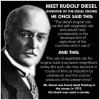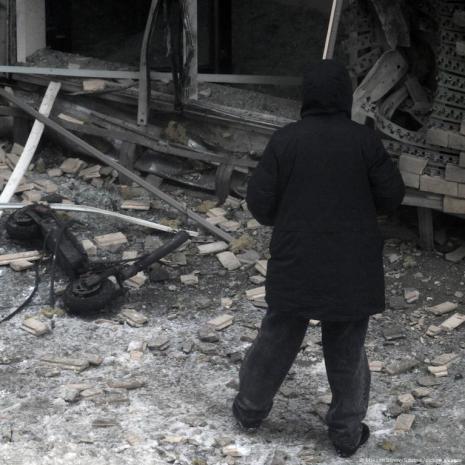
Breaking News
 Episode 403: THE POLITICS OF POLIO
Episode 403: THE POLITICS OF POLIO
 Google Versus xAI AI Compute Scaling
Google Versus xAI AI Compute Scaling
 OpenAI Releases O3 Model With High Performance and High Cost
OpenAI Releases O3 Model With High Performance and High Cost
 WE FOUND OUT WHAT THE DRONES ARE!! ft. Dr. Steven Greer
WE FOUND OUT WHAT THE DRONES ARE!! ft. Dr. Steven Greer
Top Tech News
 "I am Exposing the Whole Damn Thing!" (MIND BLOWING!!!!) | Randall Carlson
"I am Exposing the Whole Damn Thing!" (MIND BLOWING!!!!) | Randall Carlson
 Researchers reveal how humans could regenerate lost body parts
Researchers reveal how humans could regenerate lost body parts
 Antimatter Propulsion Is Still Far Away, But It Could Change Everything
Antimatter Propulsion Is Still Far Away, But It Could Change Everything
 Meet Rudolph Diesel, inventor of the diesel engine
Meet Rudolph Diesel, inventor of the diesel engine
 China Looks To Build The Largest Human-Made Object In Space
China Looks To Build The Largest Human-Made Object In Space
 Ferries, Planes Line up to Purchase 'Solar Diesel' a Cutting-Edge Low-Carbon Fuel...
Ferries, Planes Line up to Purchase 'Solar Diesel' a Cutting-Edge Low-Carbon Fuel...
 "UK scientists have created an everlasting battery in a diamond
"UK scientists have created an everlasting battery in a diamond
 First look at jet-powered VTOL X-plane for DARPA program
First look at jet-powered VTOL X-plane for DARPA program
 Billions of People Could Benefit from This Breakthrough in Desalination That Ensures...
Billions of People Could Benefit from This Breakthrough in Desalination That Ensures...
 Tiny Wankel engine packs a power punch above its weight class
Tiny Wankel engine packs a power punch above its weight class
Russia - Agree To Be Provoked or Fall For Lucy's Football?

Lieutenant-General Igor Kirillov, commander of the nuclear, biological and chemical forces of the Russian army, died in a blast as he was heading out of a residential block in Moscow, the Russian Investigative Committee said in a statement.
An explosive device was hidden in an electric scooter parked nearby. Kirillov's aide also died in the attack, the investigative committee said, announcing a criminal investigation. Video footage obtained by POLITICO corroborates that version of events.
Kirillov lived in a normal apartment block. His aide was picking him up for work. They were observed and someone who was watching (and filming) them pulled the trigger.
Kirillov was well known. He gave several public presentations about secret U.S. bio-warfare experiments in Ukraine:
Writing on Kirillov's passing, Russian Foreign Ministry spokeswoman Zakharova said that throughout his career he had repeatedly exposed the crimes of the "Anglo-Americans" such as "NATO provocations with chemical weapons in Syria, Britain's manipulations with prohibited chemical substances and provocations in Salisbury and Amesbury, the deadly activities of American biolabs in Ukraine, and much more."
"He worked fearlessly. He did not hide behind people's backs," Zakharova wrote.
This is of course a provocation designed by Ukraine to make peace talks with Russia, as president-elect Donald Trump presumably favors, less possible.
The question for Russia is now how to react to it.
Should it hit back with its whole might and destroy the 'decision making centers' in Kiev who are responsible for this incident? (Note: An accurate definition of 'decision centers' would include the embassies of the U.S. and Great Britain in Kiev.)
Or should it hold back and hope that negotiations about Ukraine with Donald Trump will actually achieve some positive, if temporary, results?
It is a difficult question.
The general configuration of the incoming Trump administration is hawkish.



